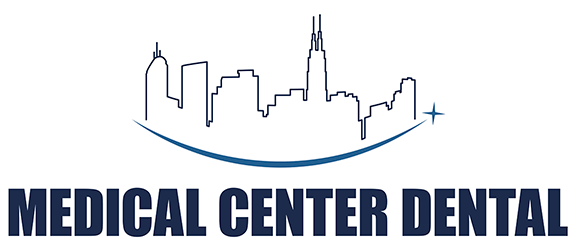Good oral health is more important to full body system functioning than most people realize. It is no secret that taking care of your teeth and scheduling regular dental appointments prevents cavities and reduces the chance of developing more serious oral health complications, but deteriorating oral health is also linked to a number of physical ailments, such as cardiovascular disease, endocarditis, pneumonia, and diabetes.
A lesser-known connection between oral health and physical health is the effect dental problems have on mental health. An abundance of evidence suggests mental health and oral health are intertwined in a complex way and a problem with one can often significantly impact the other.
Mental Illness and Dental Avoidance
Dental anxiety is not uncommon, even for those who do not have a diagnosed mental illness. Some anxiety stems from a negative past experience while others are worried or embarrassed about the condition of the teeth and gums. Even though some dental patients avoid dental appointments due to anxiety, there is also a subset of the population with diagnosed mental illness that causes dental avoidance. These patients either do not practice good oral hygiene or avoid the dentist even if a procedure is needed to avoid further damage or disease.
-
Dental phobia.
- Common forms of dental anxiety are different from true dental phobia. Patients suffering from dental phobia tend to avoid the dentist altogether, even in problematic dental situations that can cause permanent damage or become health emergencies. Although sedation dentistry and therapy can help ease dental phobia, many individuals still wait until problems have become too severe to ignore.
-
Dental neglect.
- Patients with mental illnesses that lead to neglect of general health also tend to neglect dental health. This can lead to decaying teeth and diseases of the gums and mouth tissue. Permanent tooth loss and general health problems can develop over time from ignoring dental hygiene concerns. It is important for caregivers of individuals with severe mental illness to incorporate good oral hygiene measures in the plan of care and include visits to the dentist if possible.
-
Dental compulsions.
- Some types of mental illnesses lead to compulsive behaviors, and dental-related compulsion is no exception. Those who experience compulsive dental behaviors can damage the teeth and gums by attempting to overclean the teeth and gums or brush and floss too hard. This can cause gum injury and prematurely wear away tooth enamel.
-
Eating disorder damage.
- Eating disorders, particularly bulimia, can be incredibly damaging to oral health for several reasons. Frequent vomiting exposes the teeth to heavily acidic conditions that erode the enamel and can cause tooth loss. Disordered eating can also lead to nutritional deficiencies, including the calcium the body needs to keep teeth and bones strong and healthy.
-
Medication side effects.
- Those with mental health conditions often need medication to aid in the reduction of symptoms. Some of these medications have side effects that can have an adverse effect on oral health, such as a chronic dry mouth. The lack of saliva in dry mouth conditions can lead to an overgrowth of bacteria.
-
Dental deterioration from substance abuse.
- Many substances cause problems with tooth decay directly, including illegal drug use as well as legal substances such as alcohol and tobacco.
Since many types of mental health and dental concerns can lead to dental avoidance and long-term dental issues, care should be taken to find ways to incorporate healthy oral hygiene practices into everyday life. A dental professional can provide ideas for helping establish healthy dental habits that include a visit to the dentist for care when needed.
In the Houston, TX area, Medical Center Dental Group provides solutions and innovative methods to treat those who have neglected dental health long-term or who have a fear of visiting the dentist for a needed procedure.
Oral Health and Depression
Although mental health conditions can cause problems with oral health, the opposite is also a concern. Dental conditions can have an impact on everyday life and can cause self-esteem problems that in more serious cases can lead to poor emotional and mental health. It is important to understand the connection between oral health and the brain, both emotionally and physically. Dental practitioners stress the importance of regular dental visits, since putting off visits can worsen both the current dental problems and future problems with self-esteem and confidence.
Since the smile is one of the first things other people notice about you, having obvious dental decay or missing teeth can cause some people to interact less with others. This avoidance of human interaction can trickle into many different aspects of your life, including relationships and employment. Poor self-image and low confidence sometimes lead people to become underemployed or avoid positions that would involve customer service interactions. If you feel anxious about your smile, you may be less likely to apply for a job that requires an in-person interview, or you may feel uncomfortable working with a team.
In addition to obviously discolored, decayed, missing, or crooked teeth, some people with dental conditions suffer from chronic bad breath. Gingivitis, gum disease, or an overgrowth of bacteria in the mouth can all cause chronic bad breath and cause similar problems with self-esteem as damaged teeth. Long-term bacterial overgrowth can lead to more than just concerns with bad breath or damaged teeth since bacteria can spread to other areas of the body. Bacteria in the bloodstream or in the throat or sinus passages can cause long-term inflammation and other systemic concerns.
The connection between oral health and body wellness is a strong one. Even though poor dental health can cause physical problems, it can also be detrimental to mental health. People with advanced dental issues can have trouble connecting with others and maintaining gainful employment, leading to depression or social anxiety that can become serious and long-term. A positive self-image and feelings of personal value and worth are
vital to healthy mental health, and believing others are avoiding you due to poor dental conditions can be devastating. If you feel you are being held back in life due to problems with your teeth, gums, or breath, speaking with a dentist who can analyze your problems and give you a clear set of options can be a big relief.
Innovative Dentistry in Houston, Texas
One of the best ways to ensure good oral health for life is by connecting and establishing a relationship with a dental team that is compassionate, experienced, and up-to-date with the most modern dental health practices. Medical Center Dental Group – Ingenious Dentistry provides an excellent standard of care to Houston, TX area residents using a patient-centered focus combined with modern technology. If you have been avoiding the dentist due to anxiety or embarrassment, speak with a member of the team to see what options are available to ease your concerns.
No matter what concerns you have with your smile, a professional dental team will have a positive solution for you. Contact Ingenious Dentistry today to set up a consultation or to get answers to your questions. You can also call us at (713) 795-5905.
_______
Photo Credit: Monkey Business Images




